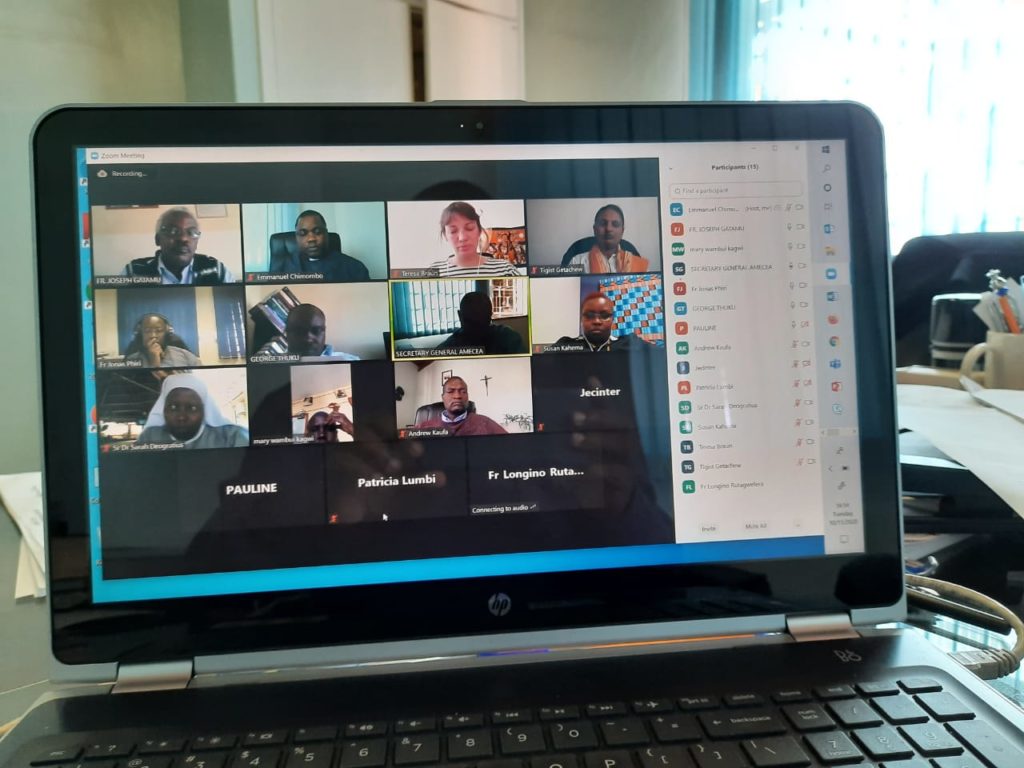AMECEA: “Mental Disorders,” Concern for Counsellors amid COVID-19 Pandemic in AMECEA Region

Sr. Jecinter Antoinette Okoth, FSSA
In a report shared by counsellors providing online spiritual and psycho-social services within the Association of Member Episcopal Conferences in Eastern Africa (AMECEA) region in response to Covid-19 pandemic, “mental disorders” has been identified as an area of concern that needs more attention across all conferences.
The counselling program which commenced in August within AMECEA countries (Ethiopia, Eritrea, Sudan, South Sudan, Uganda, Kenya, Tanzania, Malawi and Zambia) included one-on-one online encounters and radio-based group therapy.
“One area of concern that clearly stands out during this period of Covid-19 is that people have been mentally affected,” one of the counsellors shared during the virtual session Tuesday, November 10.
“Mental health issues such as anxiety and depression are cross-cutting in nearly all conferences, more especially due to Covid -19 measures such as lockdown and quarantine put in place in most countries to help curb the spread of the Coronavirus,” the counsellor explained.
According to the counsellors who are offering services to those affected and infected by Covid-19, the clients have other challenges they shared such as financial hardships, gender-based violence, teenage pregnancies and drug abuse.
Sharing about the South Sudan experiences, AMECEA Pastoral Coordinator Fr. Emmanuel Chimombo who is overseeing the running of the project in all the conferences said that “a number of people are traumatized not only because of Covid-19 and other challenges they face as a country.”
“When the radio program on spiritual and psycho-social support began in South Sudan, clients have been raising so many issues they have been suffering from other than Covid-19 challenges, yet they lacked spiritual and pastoral support to share their traumas,” Fr. Chimombo disclosed.
He added, “One challenge that is saddening in nearly all conferences is teenage pregnancies. Many countries across the region have reported that girls cannot go back to school and have lost the opportunity, while others have been disowned by their parents and family members.”
The counselors themselves have appreciated the psycho-social support they have offered so far, terming it a period of “learning and of growth.”
“This counselling work we have been doing through radio programs is very important,” one of the counsellors said and highlighted, “it is impacting lives, it is creating awareness and giving people the opportunity to reflect, think and know the need of sharing their challenges. Besides, it has been an opportunity of learning and of growth for us as counsellors.”
On her part, Ms. Teresa Braun who represented Missio Aachen, an organization that provides help for pastoral projects and which is financially supporting the AMECEA psycho-social program, noted that the Covid-19 challenges experienced in AMECEA region are not much different from those experienced in Germany where she is based.
However, she expressed her concern on how the spiritual and psycho-social activities can be continued since the pandemic is still with us, and the cooperation with the governments in the AMECEA countries.


